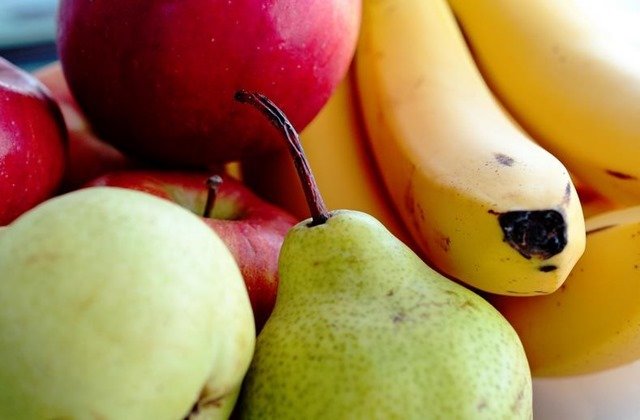Pear, apple and banana are ideal to start the baby’s solid diet, hence they are considered the first fruits. Find out how to introduce them and what their qualities are.

The transition from breastfeeding -or artificial feeding- to solid feeding tends to become one of the most important stages in the nutrition of the baby, and also a concern for many moms and dads, especially and especially when they are first timers and are faced with this delicious moment for the first time. And there are many doubts that arise in parents: when to start? What fruits are ideal to start with?
Depending on the pediatrician, and whether or not the baby is drinking breast milk, the beginning of giving the baby the first fruits may occur earlier or a little later. Many pediatricians advise starting around 6 months of age, especially if the baby is drinking breast milk. However, in case the child is taking artificial milk, many pediatricians advice starting with the fruit from the fourth month. Of course: milk should continue to be your main food.
What are the best fruits to start giving to the baby?
We could speak at this time of what many pediatricians conceive as the first fruits of the baby. That is, fruits that, due to their sweet taste, texture and low capacity to cause intolerances and allergies, are the most recommended when starting solid baby food.
It is advisable to start first with the apple or the pear, which as you will surely know are characterized by being fruits with a sweet and mild flavor (the pear perhaps more than the apple). And then the banana.
And what are its benefits for the baby?
- Pear: it is an extremely complete fruit. From a nutritional point of view it is very rich in amino acids and polyunsaturated fatty acids essential for the formation of tissues in the baby. It also provides potassium, which acts together with calcium in the formation of the child’s bones. It is high in fiber, water, vitamin C, folic acid and beta-carotene.
- Apple: as with the pear, it is a fruit very rich in minerals (especially potassium, calcium, sodium, magnesium and iron), as well as vitamins (such as vitamin A, C, E and group B). It is also rich in fiber and water, being ideal to hydrate and refresh the baby.
- Banana: easily digestible, it is very rich in carbohydrates, hence it is ideal for babies and children. It provides a high content of potassium, magnesium, vitamin C, provitamin A and folic acid.
How to introduce the baby’s first fruits?
It is essential to start offering him a single fruit porridge and continue like this for 3 or 4 days. In this way we will observe if it causes any intolerance or allergy, and if especially the baby likes it. If after these days we see that the baby tolerates it well, we will incorporate another different fruit, in the same way that we have done with the first.
That is, if, for example, you start with the pear, you must continue with it for at least 3 or 4 days, during which you will observe the baby how he eats it, if he accepts it and especially if he tolerates it well. If after this time everything is positive, you can replace it with the apple and do the same for 3 or 4 days. The same with the banana. And, finally, incorporate pear and apple in the same porridge, or banana and pear.































